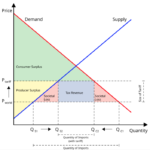As I said Previous article On Nazi Officer’s WifeEconomics comes up everywhere, and this book is no exception.
Here are two.
First, some background on our first example: In April 1941, Edith Hahn Beer was forced to sign a contract that required her to do slave labor on an asparagus farm in Germany. She and her Jewish coworkers were forced to wear yellow stars at all times. But during their days off, they wanted to go into town and do some shopping. This created a dilemma.
She writes:
The police told us that to get our yellow stars we had to write to Vienna and wear them at all times when they arrived. But if we had done that, the shopkeepers in town wouldn’t have treated us well, so we didn’t wear them. The farm overseers didn’t seem to mind at all. I think they started trying to please us so that we would continue to work obediently, rather than pleasing the police.
Incentives were at work: the economic self-interest of supervisors trying to meet production quotas trumped obedience to government rules.
The second is about adjustments to Hitler’s price controls.
Peasants from outside the towns made a lot of money through barter: they brought their most expensive furniture and exchanged it for carrots, chunks of bacon, or fresh cheese. People joked that the peasants now had so many Persian carpets that they kept them in their cowsheds.
Incidentally, I have written at length about how this barter continued after the war, even as the Allies continued to enforce Hitler’s price controls.The German economic miracleEdited by David R. Henderson A concise encyclopedia of economicsAs soon as price controls were lifted, barter ended and the German economic miracle began.






